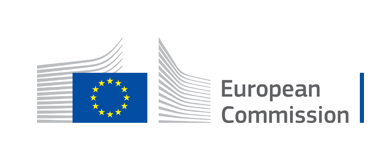|
|

|

|
|
|
10 October 2019
|
|

|
|
|
Economic and Financial Affairs
ECFIN E-news 204
|
|
|
|
|
|
|
follow us :
|


|
|
|
|
|
|
|
|
|
Top story
|

|
|
Paolo Gentiloni and Valdis Dombrovskis win approval of European Parliament as Commissioners-designate
|
|
On 3 October, the members of the Economic and Monetary Affairs (ECON) committee of the European Parliament questioned Paolo Gentiloni, the Italian Commissioner-designate for the Economy portfolio.
|
|
|
|

|
|
On 8 October, joined by colleagues from the Employment and Social Affairs Committee, they questioned Valdis Dombrovskis, the Latvian Executive Vice-President-designate for An Economy that Works for People portfolio. During his introductory speech, Mr Gentiloni emphasised that economic growth and the transformation of economies must not go counter to pressing environmental and social priorities. He pledged to focus on reducing public debt, while also encouraging the use of any available fiscal space to invest. Overhauling the taxation framework at the EU level would also top the agenda, Mr Gentiloni added. During his introductory speech, Mr Dombrovskis stressed that for the EU to leverage its economic and political weight and act independently, it needs a solid financial footing and must lead on green and digital transformation. Changes can only succeed if they are socially fair, he added. Mr Dombrovskis announced that he will present an action plan to ensure the European Pillar of Social Rights is effectively implemented, accompanied by a proposal for a framework for minimum wages. Both candidates won the backing of the committees’ members. Now, based on the committee’s recommendations, the Conference of Presidents will decide on 17 October if Parliament has received sufficient information to declare the hearing process closed. If so, the plenary will vote on whether or not to elect the Commission as a whole on 23 October.
|
|
|
|

|
|
|
|
Viewpoint
|
|
|
|
Paulo Gentiloni, Commissioner-designate, Economy
|

|
|
“We need to add to monetary policy a more coordinated fiscal policy with the differentiation that are obvious among different countries and a strong focus on investment.”
|
|
|
|

|
|
|
|
More News
|

|
|
Euro area finance ministers agree on budgetary instrument for convergence and competitiveness
|
|
On 10 October, Euro area finance ministers met in the Eurogroup inclusive format and agreed on all the critical elements regarding the budgetary instrument for convergence and competitiveness (BICC) for the euro area, including governance, financing, and allocation and modulation of the BICC in a term sheet.
|
|
|

|
|
The ministers also discussed the Banking Union, developments in competitiveness in the euro area and the main findings of the 10th post-programme surveillance mission to Portugal. The Eurogroup gave its support to the candidacy of Fabio Panetta to replace the outgoing member of the ECB’s executive board, Benoît Cœuré, and Eurogroup President Mário Centeno invited Member States to put forward their candidates to replace Sabine Lautenschläger on the ECB's executive board with plans to agree on a candidate at the Eurogroup meeting in November.
|
|
|
|

|
|
Staff statement following the twelfth post-programme mission to Spain
|
|
Staff from the European Commission, in liaison with staff from the European Central Bank, visited Madrid from 8-9 October for the twelfth post-programme mission to Spain.
|
|
|

|
|
Staff from the European Commission, in liaison with staff from the European Central Bank, visited Madrid from 8-9 October for the twelfth post-programme mission to Spain. Staff from the European Stability Mechanism participated in the meetings in the context of its Early Warning System. The mission focused on financial sector developments and also discussed macroeconomic and budgetary developments, in view of the forthcoming Commission autumn 2019 forecast and the subsequent assessment of the Draft Budgetary Plan, due to be presented by the Spanish authorities by 15 October. Staff discussed the performance of the overall banking sector and recent credit developments, focusing on solvency, liquidity position and profitability, as well as the evolution of non-performing loans. They held discussions on banks that had received state aid and had undergone restructuring. The mission continued to monitor asset management company SAREB’s implementation of its business strategy and was updated by its management on progress with the company’s divestment strategy. The surveillance report reflecting the detailed findings of this mission is scheduled for publication in early December 2019. The next post-programme surveillance mission will take place in spring 2020.
|
|
|
|

|
|
EU approves €30 million disbursement in Macro-Financial Assistance to the Republic of Moldova
|
|
On 10 October, the European Commission, on behalf of the EU, approved the disbursement of €30 million in Macro-Financial Assistance to the Republic of Moldova.
|
|
|

|
|
This is the first of three planned disbursements under the Macro-Financial Assistance (MFA) programme to Moldova that was adopted in September 2017. The programme, worth up to €100 million, is designed to assist Moldova in covering its external financing needs while implementing a wide-ranging and ambitious structural reform agenda. For disbursements under the MFA programmes to take place, several conditions need to be met: political preconditions related to respect of democratic mechanisms, the rule of law and human rights need to be fulfilled, and specific policy measures need to have been successfully implemented. Disbursements are also conditional on good progress with the IMF programme. Moldova has now also fulfilled the policy commitments agreed with the EU, as laid down in the Memorandum of Understanding, for the release of the first disbursement. This includes measures taken to fight corruption and money laundering, to foster greater transparency in public finance management, to modernise the country’s public administration, to advance the ongoing reforms of the energy and financial sectors and to improve the business environment. The IMF also recently completed the fourth and fifth reviews of its programme with Moldova. These decisions have paved the way to a resumption of the disbursement of the assistance. The disbursement of €30 million will be composed of €10 million in grants and €20 million in loans.
|
|
|
|

|
|
Investment Plan: EU invests in environmental, social, creative and housing sectors across Europe
|
|
The European Investment Fund (EIF) is making history in Croatia with an investment of €15 million in the country's first social impact fund worth €30 million.
|
|
|

|
|
The Feelsgood Fund launched on 2 October will benefit Croatian early- to growth-stage startups with an environmental and social impact. The transaction is enabled by a guarantee from the EU budget, under the Investment Plan for Europe - the Juncker Plan - and its European Fund for Strategic Investments (EFSI). In Romania, the European Investment Bank (EIB) agreed on 2 October to provide a €7.5m loan to help Romanian food waste management company Winnow develop software and hardware solutions to reduce food waste in professional kitchens. Swedish creative entrepreneurs will be able to borrow up to SEK 1 million (approx. €92,300) thanks to a 70% EIF loan guarantee under the Creative Europe Programme to Marginalen Bank. The EIB announced on 1 October that it has provided €200 million to support clean urban transport in Spain, in particular helping municipalities to swap their older, more polluting diesel buses for new cleaner alternatives. In a similar vein, under the Connecting Europe Facility, the EIB signed a €115 million loan on 30 September to help public transport provider RET to buy over 200 cleaner buses and renew metro and tram tracks in Rotterdam and surrounding municipalities. In Sweden, Heimstaden Bostad is to receive SEK 3 billion (approx. €300 million) EU financing for the construction of affordable and energy efficient housing.
|
|
|
|

|
|
Juncker Plan: SRSS and EIB join forces to provide advisory services and improve investment climate
|
|
The European Commission's Structural Reform Support Service (SRSS) and the European Investment Bank's (EIB) Advisory Services Department announced on 27 September that they will collaborate closely to provide technical support and advice to Member States on a broad range of policy areas via the European Investment Advisory Hub.
|
|
|

|
|
The overall objective of this partnership is to continue improving Member States' business environments by removing barriers to investment, which is a crucial part of the Juncker Plan. The SRSS and the Advisory Hub will work together to provide expertise to Member States' authorities in areas such as public-private partnerships, support to national promotional banks and institutions, financial instruments and platforms, environmental and other sectoral reforms. The SRSS offers tailor-made support to all EU countries for the preparation, design and implementation of growth-enhancing reforms. The European Investment Advisory Hub is a joint initiative of the Commission and the EIB which acts as a single point of access to advisory services to make projects ready for investment, using expertise of the EIB Group, the European Commission and other relevant institutions and services.
|
|
|
|

|
|
|
|
Publications
|

|
|
Cruising at Different Speeds: Similarities and Divergences between the German and the French Economies
|
|
This paper looks at the economies of France and Germany and discusses differences in their growth models and divergences in their performance since the economic crisis.
|
|
|

|
|
|
|

|
|
Post-Programme Surveillance Report. Portugal, Summer 2019
|
|
This report by the European Commission presents the findings of the tenth post-programme surveillance mission to Portugal and identifies remaining challenges for the Portuguese economy.
|
|
|

|
|
|
|

|
|
|
|
Selected Speeches
|
|
26/09/2019
|
|
Vice-President Dombrovskis. keynote address at the European Economic and Social Committee Plenary
|
|
|
|
|

|
|
|
|
Agenda
|
|
|

|
|
|

|
|













